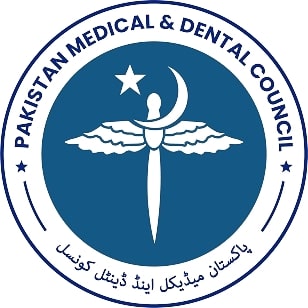Is Empagliflozin a new drug in the making for Patients with Acute Decompensated Heart Failure?
DOI:
https://doi.org/10.59058/jaimc.v21i4.206Keywords:
axute, heart faiure, empaglifozinAbstract
Background and Objectives: Empagliflozin has dramatically enhanced outcomes in heart failure patients. The objective was to study the effect of Empagliflozin in acute setting as add-on treatment on cardiac hemodynamic by measuring pulmonary capillary wedge pressure (PCWP) and by Echocardio-graphy
Methods: It was a prospective observational study conducted on 75 patients presenting with acute heart failure at Chaudhary Muhammad Akram Teaching & Research Hospital Lahore,(CMAT & RH) with 4 days in-hospital echocardiographic follow up. After taking approval from IRB & written informed consent from patient, a questionnaire was used as data collection tool with information regarding basic demographic features prescribing empagliflozin as well as PCWP on day 0, day 1 & day 3 after fulfilling the inclusion criteria and results were calculated using Statistical Package for Social Sciences (SPSS) version v 20 32 bit.
Results: In our study, the mean age of participants was 57.5±7 years with 24% males (n=18) and 76% females (n=57). 93.3% of participants were known hypertensive, 57.3% were diabetic, 21.3% of cases were having significant family history of ischemic heart disease. Among all, 64% were having 2 or less risk factors and 36% were having more than 2 risk factors. In accordance to symptoms, 35% of participants were having NYHA class II to III symptoms and 65% were in NYHA class IV. 53% of participants were having chronic heart failure symptoms while 43% were having denovo symptoms. Among them, 42% were started with 25mg/day empagliflozin and 58% were started with 10mg/day according to their symptoms and requirements. Mean PCWP calculated at Day 0 was 22+7.5mmHg reduced to 14.3±5.2 mmHg at 1st day and10.6±3.3 mmHg at 2nd day after therapy which was statistically significant (p value=0.041).
Conclusion: This study concluded that addition of Empagliflozin to standard treatment significantly reduced PCWP in patients having acute decompensated heart failure.
Key Words: Pulmonary capillary wedge pressure(PCWP), Empagliflozin, Heart failure (HF).
Downloads
Published
How to Cite
Issue
Section
License
Copyright (c) 2024 Nasir Iqbal, Muhammad Atif Qureshi, Muhammad Zahid Latif, Muhammad Ijaz Bhatti, Hassan Abbas Abdullah, Sania Tahir

This work is licensed under a Creative Commons Attribution 4.0 International License.
The articles published in this journal come under creative commons licence Attribution 4.0 International (CC BY 4.0) which allows to copy and redistribute the material in any medium or format Adapt — remix, transform, and build upon the material for any purpose, even commercially under following terms.
-
Attribution — You must give appropriate credit, provide a link to the license, and indicate if changes were made. You may do so in any reasonable manner, but not in any way that suggests the licensor endorses you or your use.
- No additional restrictions — You may not apply legal terms or technological measures that legally restrict others from doing anything the license permits.
The editorial board of the Journal strives hard for the authenticity and accuracy of the material published in the Journal. However, findings and statements are views of the authors and do not necessarily represent views of the Editorial Board. Many software like (Google Maps, Google Earth, Biorender (free version)) restricts the free distribution of materials prepared using these softwares. Therefore, authors are strongly advised to check the license/copyright information of the software used to prepare maps/images. In case of publication of copyright material, the correction will be published in one of the subsequent issues of the Journal, and the authors will bear the printing cost.










